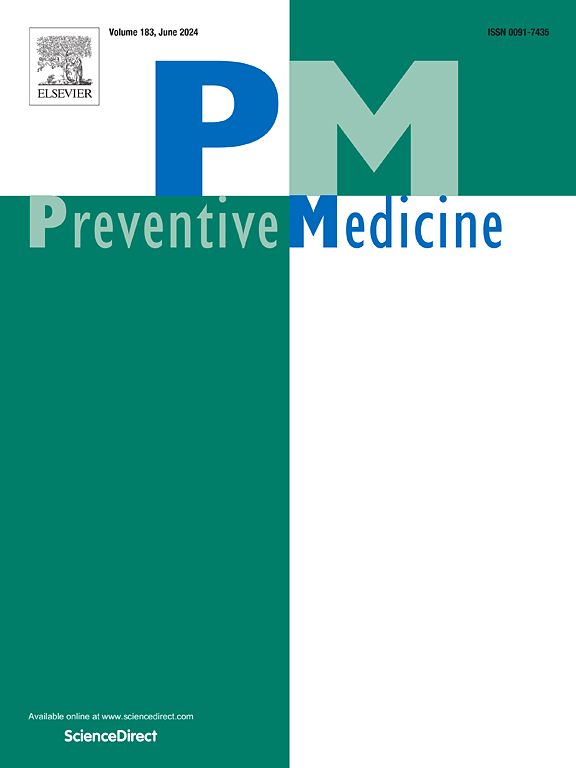德国心理社会紧张的儿童和家庭获得和使用预防性心理健康服务的障碍:来自不同部门专业人员的观点。
IF 3.2
2区 医学
Q1 MEDICINE, GENERAL & INTERNAL
引用次数: 0
摘要
目的:有心理社会压力的儿童、青年和家庭(CYF)面临更高的心理健康问题风险。卫生、教育和社会部门的预防性精神卫生服务可以减少这种风险,但往往得不到充分利用或有等待时间。虽然从客户的角度存在一些关于使用障碍的数据,但专业人士的角度也很重要,特别是对于了解提供商和组织方面的障碍并确定解决方案。本研究从多个部门专业人员的角度考察了获取和使用服务的障碍。方法:于2024年对德国两个城市的社会经济弱势地区的卫生、教育和社会部门的专业人员进行了19次半结构化访谈。采访录音,逐字抄写,并采用专题分析进行编码。结果:专业人员描述了(1)客户层面(例如,使用心理社会服务感到羞耻),(2)提供者层面(例如,对服务的了解不足),(3)组织层面(例如,责任或专业知识不适合家庭需求)和(4)系统层面(例如,等待时间长)的障碍。为了解决障碍,专家建议与家庭建立信任,与其他专业人员建立联系和合作,建立一站式服务模式,以克服家长在孩子需要多种服务时的时间限制。结论:专业人员是识别心理社会紧张的青少年青少年获得和使用预防性心理卫生服务的障碍并找到解决办法的关键。与其他专业人员的部门间交流可以提高其他机构的服务意识,并指导部门间合作。必须在各级和部门之间全面解决障碍,以有效克服这些障碍。本文章由计算机程序翻译,如有差异,请以英文原文为准。
Barriers to accessing and using preventive mental health services for psychosocially strained children and families in Germany: Perspectives of professionals from different sectors
Objective
Children, young people, and families (CYF) with psychosocial strains face elevated risks for mental health problems. Preventive mental health services in health, education, and social sectors can reduce this risk, but are often underused or have waiting times. While some data on barriers to use from clients' perspectives exist, the professionals' perspective is also important, particularly for understanding barriers at the side of providers and organizations and identifying solutions. This study examines barriers to accessing and using services from the perspective of professionals in multiple sectors.
Methods
Nineteen semi-structured interviews were conducted with professionals from the health, education, and social sectors in socioeconomically disadvantaged districts of two German cities in 2024. Interviews were audio-recorded, transcribed verbatim and coded using thematic analysis.
Results
Professionals described barriers at the (1) Client level (e.g., feeling ashamed using psychosocial services), (2) Provider level (e.g., insufficient knowledge about services), (3) Organizational level (e.g., responsibility or expertise not fitting families' needs), and (4) System level (e.g., long waiting times). To address barriers, professionals suggested trust-building with families, establishing contact and collaboration with other professionals, and building one-stop-shop models of co-located services to overcome parents' time constraints when children need multiple services.
Conclusions
Professionals are key to identifying barriers to preventive mental health service access and use in psychosocially strained CYF and finding solutions. Intersectoral exchange with other professionals can increase service awareness from other institutions and guide intersectoral collaboration. Barriers must be addressed holistically across levels and sectors to effectively overcome them.
求助全文
通过发布文献求助,成功后即可免费获取论文全文。
去求助
来源期刊

Preventive medicine
医学-公共卫生、环境卫生与职业卫生
CiteScore
7.70
自引率
3.90%
发文量
0
审稿时长
42 days
期刊介绍:
Founded in 1972 by Ernst Wynder, Preventive Medicine is an international scholarly journal that provides prompt publication of original articles on the science and practice of disease prevention, health promotion, and public health policymaking. Preventive Medicine aims to reward innovation. It will favor insightful observational studies, thoughtful explorations of health data, unsuspected new angles for existing hypotheses, robust randomized controlled trials, and impartial systematic reviews. Preventive Medicine''s ultimate goal is to publish research that will have an impact on the work of practitioners of disease prevention and health promotion, as well as of related disciplines.
 求助内容:
求助内容: 应助结果提醒方式:
应助结果提醒方式:


